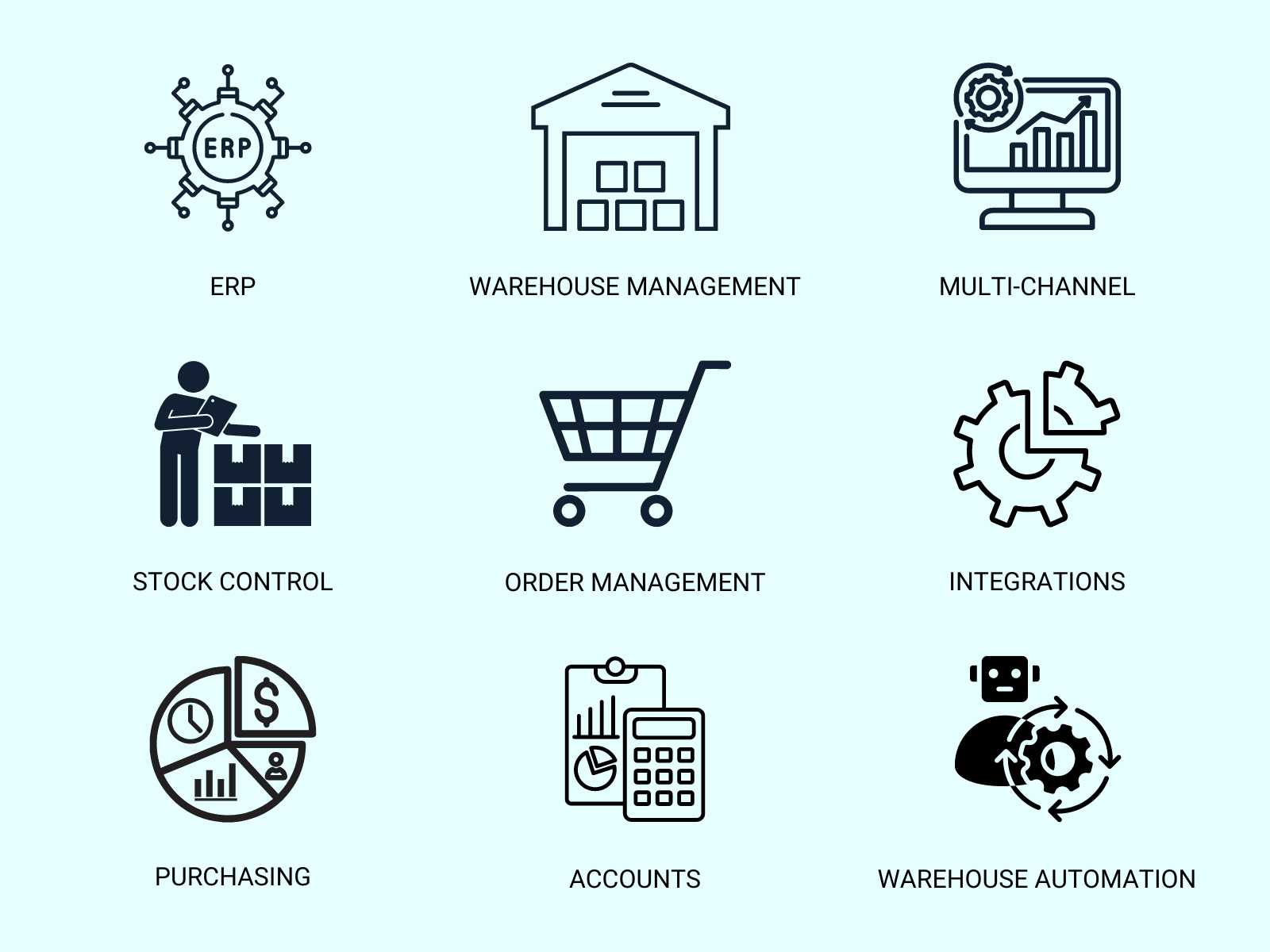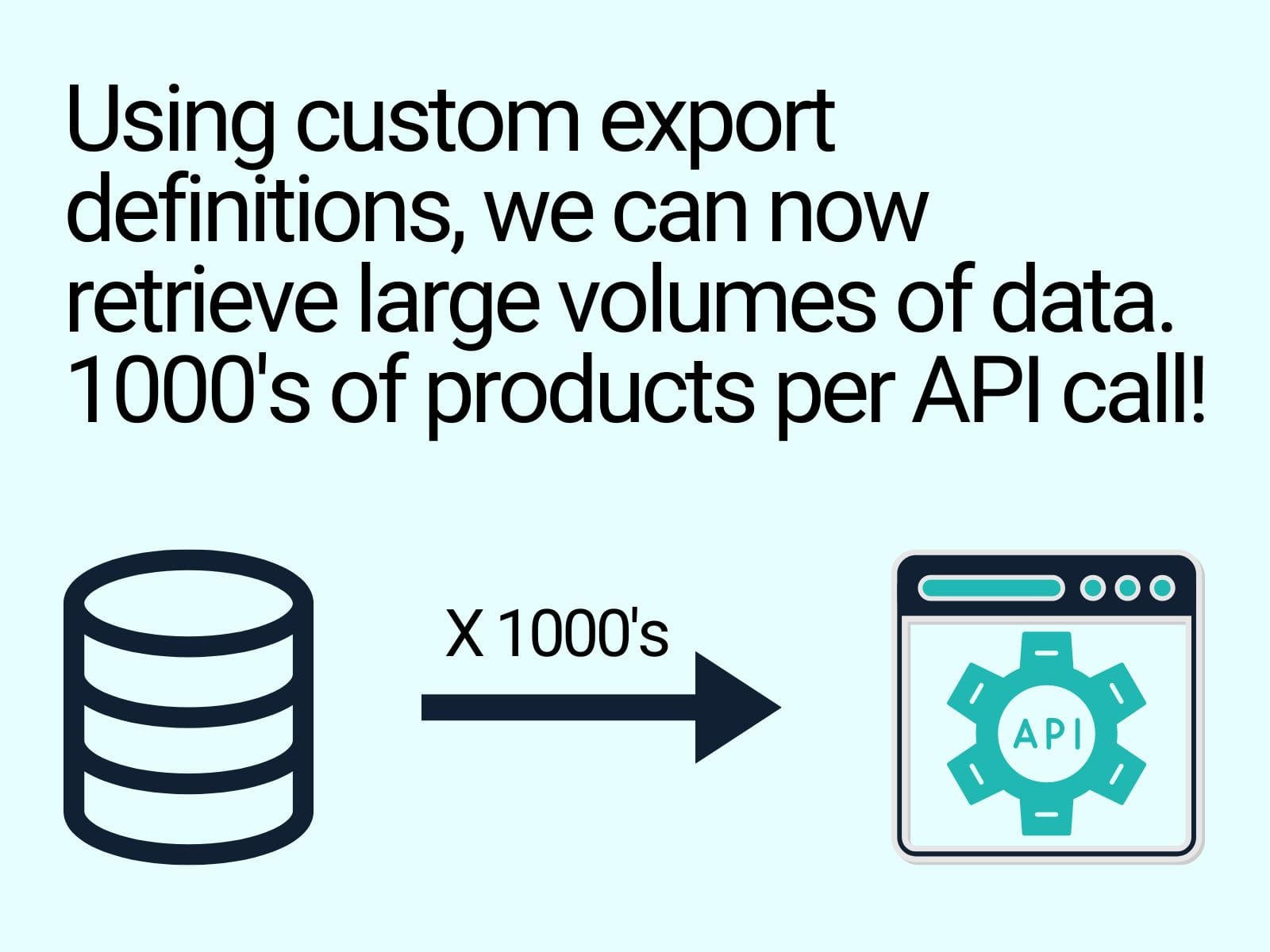Solving the Orderwise API Limitation for Bulk Data Retrieval

The article explains how to solve a common issue with the Orderwise API, specifically its limitation of retrieving product data one at a time, which can be inefficient for businesses needing bulk data. It introduces the concept of custom export definition endpoints within the API and demonstrates how these endpoints, along with custom SQL queries, allow for efficient bulk data retrieval.
Overview of Orderwise: A trusted system for eCommerce businesses
Orderwise is an integrated ERP (Enterprise Resource Planning) and warehouse management solution widely used by eCommerce businesses to streamline their operations. Designed to handle complex business processes, Orderwise offers a unified platform that helps companies manage inventory, orders, purchasing, and sales, all while keeping key business data centralised.


For eCommerce businesses, Orderwise solves several critical challenges:
- Inventory Management: Orderwise allows businesses to maintain real-time visibility of their stock levels across multiple channels, ensuring they can meet customer demand and avoid stockouts or overstocking.
- Order Processing: The system automates order fulfilment workflows, ensuring orders are processed, packed, and dispatched quickly, helping businesses meet tight delivery expectations and avoid costly errors.
- Warehouse Efficiency: By integrating with warehouse management systems, Orderwise optimises storage, picking, and packing processes. This minimises labour costs and increases the speed at which orders move through the warehouse.
- Financial Oversight: With built-in accounting and financial management tools, Orderwise allows businesses to keep track of costs, margins, and profitability, all within a single platform.
- Multi-channel Support: Orderwise integrates with major eCommerce platforms, such as Shopify, Magento, and WooCommerce, allowing businesses to manage their sales from multiple channels in one place. This reduces the complexity of managing separate inventories and sales reports.
Why eCommerce businesses turn to Orderwise
eCommerce businesses rely on Orderwise because it provides the scalability and automation needed to manage high volumes of data and transactions. With the ability to handle everything from stock control to customer relationship management, Orderwise helps businesses run more efficiently and meet the growing demands of online retail. It simplifies operations, allowing businesses to focus on growth rather than getting bogged down by manual processes.


Orderwise provides unified visibility of product lines, stock, locations and stock value for all staff.
However, despite these benefits, many businesses encounter limitations with the standard Orderwise API, particularly with retrieving data in bulk. These limitations can hinder growth by slowing down crucial workflows. Technical decision-makers need a deeper understanding of how to overcome them.
The Orderwise API Bottleneck: One-product-at-a-time data retrieval
While Orderwise offers robust features for managing eCommerce operations, many businesses encounter limitations when using its standard API.
The default Orderwise API only allows for the retrieval of product data one product at a time. This restriction becomes a serious bottleneck for businesses dealing with large inventories or high-frequency product updates.
For eCommerce businesses handling hundreds or thousands of SKUs, retrieving product data sequentially—one product per API request—creates inefficiencies that can disrupt operations. This limitation poses several challenges:
- Slower Data Syncing: When an eCommerce business needs to update stock levels, product details, or pricing information across multiple channels, retrieving each product individually can drastically slow down the syncing process, leading to outdated or incorrect product information being displayed to customers.
- Resource-Intensive: The one-at-a-time retrieval method consumes more server resources, increases API request volume, and can quickly hit rate limits, causing delays or even timeouts during data exchanges.
- Missed Opportunities: In fast-moving eCommerce environments, being unable to retrieve and update product data in bulk can result in missed sales opportunities, especially if stock levels or pricing information isn’t updated in real-time. This can lead to overselling, stockouts, or incorrect pricing, ultimately damaging customer satisfaction.
For eCommerce businesses striving to scale, this limitation can become a roadblock, as it affects operational efficiency and the ability to meet customer demands.
Conversations with other agencies: The limitation that stalls client projects
As a leading B2B eCommerce agency with over 10 years of experience building and integrating eCommerce solutions, we often hear the same issue from other agencies: the standard Orderwise API, which only handles one product at a time, causes delays and forces agencies to turn down projects. This limitation has made it difficult for many agencies to meet client expectations and, in some cases, has even led to the loss of important business opportunities.
For agencies working on large-scale eCommerce projects, this one-product-at-a-time restriction becomes a major obstacle, especially when managing large product catalogues or frequently updating stock and pricing. Without a more efficient way to handle bulk data retrieval, these agencies face serious challenges in delivering scalable, high-performance solutions for their clients.
But we’re experts at software integration. We’ve developed smart ways to overcome this issue, enabling us to set up Orderwise quickly without delays or limits on project size. Our expertise ensures that your business runs smoothly and continues to grow without disruption, even as your data needs expand.
Our solution to the Orderwise API limitation
To fix the problem of retrieving product data one at a time, we’ve created a solution using custom export definition endpoints within the Orderwise API. This method gives us more control over how we define, retrieve, and manage product data, helping us avoid the delays that many businesses face.
What are custom export definition endpoints?
Custom export definition endpoints are a powerful feature within the Orderwise API that allow for the creation of custom SQL queries. Unlike the standard API, which forces a one-product-at-a-time data retrieval process, custom export endpoints let us write and execute our own SQL queries directly within Orderwise. This means we can specify exactly what data we want—whether it’s product information, stock levels, or pricing details—and retrieve it all at once in a single API call.
Here’s how it works:
- Write Custom SQL Queries: We create SQL queries tailored to specific business needs, such as retrieving stock levels for all products, or fetching details on newly updated or created products.
- Call the Custom Endpoint: Once the SQL query is written, we create a custom export definition endpoint that allows the Orderwise API to call and execute the query. The API then returns the query results in bulk, delivering all the required data at once.


By leveraging these custom export definitions, we can bypass the standard API’s one-product limitation and retrieve large volumes of data more efficiently, providing fast access to the most up-to-date information.
Technical insights: Custom SQL queries for specific data needs
The power of using custom export definition endpoints in the Orderwise API lies in the ability to tailor SQL queries to retrieve exactly the data your business needs. By crafting custom SQL queries, you can significantly streamline data retrieval processes, making it easier to manage large inventories and keep information up to date across all channels.
Examples of data that can be retrieved
- Stock Levels of All Products: Instead of pulling stock information one product at a time, a custom SQL query can retrieve the stock levels for all products in a single call. This is particularly useful for businesses with large product catalogs, ensuring that stock data across multiple channels is always accurate and up to date.
- Detailed Information of All Products: Whether it’s product descriptions, pricing, or category assignments, you can use a custom query to pull detailed product information in bulk. This is critical for businesses that frequently update product details or need to push large amounts of data to external platforms.
- Details of Newly Created or Updated Products: With custom queries, you can filter and retrieve only the products that have been created or updated within a specific timeframe—such as the last hour or day. This allows for more efficient syncing with external systems and ensures that the latest product data is always available without overwhelming your API with unnecessary calls.
Benefits of this approach
- Saves Time and Resources: By retrieving bulk data in a single API call, you significantly reduce the time and resources needed to sync product information. This improves the speed at which your system can process and respond to changes, eliminating the delays caused by the one-product-at-a-time limitation.
- Enhances System Compatibility and Performance: Custom SQL queries make it easier to integrate Orderwise with other eCommerce platforms and systems. By delivering the exact data needed in a more efficient manner, you improve system compatibility and ensure better performance across your entire tech stack.
Ultimately, this approach to crafting custom SQL queries not only removes the data retrieval bottlenecks but also positions your business to scale operations smoothly and efficiently, even as product catalogs and order volumes grow.
Real-world applications
For agencies working with eCommerce clients, the ability to deliver fast, scalable solutions is key to staying competitive. The standard Orderwise API’s one-product-at-a-time limitation can cause delays in data retrieval, making it difficult to meet client needs—especially for businesses with large inventories or frequent updates.
By implementing custom export definition endpoints, agencies can confidently take on more complex projects without the fear of hitting API roadblocks. With this solution, agencies can:
- Handle Larger Projects: Instead of being limited by slow API calls, agencies can retrieve bulk product data quickly, allowing them to take on clients with extensive product catalogs or high data-processing demands.
- Deliver Faster Solutions: Custom SQL queries enable quicker data syncing, meaning that agencies can offer their clients faster response times, keeping their operations running smoothly.
- Improve Client Satisfaction: By providing a seamless, efficient solution that overcomes Orderwise’s limitations, agencies can better meet client expectations, ensuring projects are completed on time and within scope—leading to stronger client relationships and more successful outcomes.
This means no more turning away clients due to technical limitations, and agencies can pursue larger, more complex eCommerce projects with confidence.
Helping eCommerce businesses
For eCommerce businesses, operational efficiency is critical to scaling and competing in fast-paced markets. With the standard Orderwise API, many businesses struggle with slow data retrieval, leading to delays in stock updates, pricing changes, and product details across multiple sales channels. These inefficiencies can directly affect the customer experience and lead to lost sales opportunities.
By leveraging custom export definitions, eCommerce businesses can:
- Maintain Accurate, Real-Time Data: Whether it’s stock levels, product information, or pricing updates, businesses can retrieve the data they need quickly and in bulk. This ensures that their online stores, marketplaces, and other channels are always up to date.
- Scale Operations Smoothly: As product catalogs grow or new sales channels are added, this solution can easily scale with the business. Bulk data retrieval through custom SQL queries allows the system to handle larger data sets without sacrificing performance.
- Increase Customer Satisfaction: By ensuring that product information and stock levels are always accurate, businesses can avoid issues like overselling or incorrect pricing, which can harm the customer experience. With this solution, they can deliver more reliable and timely service, keeping customers happy and boosting brand loyalty.
In short, this solution helps eCommerce businesses operate more efficiently, scale without friction, and ensure their customers always have access to accurate and up-to-date information—leading to better business outcomes across the board.
Ready to overcome your Orderwise challenges?
Efficient bulk data retrieval is essential for staying flexible and meeting customer demands. The standard Orderwise API, which only retrieves one product at a time, can slow down eCommerce businesses and limit their growth. By using custom export definition endpoints, businesses can retrieve data in bulk, keeping their systems running smoothly without delays.
For agencies facing challenges, custom endpoints can be a game-changer. They allow you to take on bigger, more complex client projects without sacrificing performance. It’s a smart, scalable solution that helps you stay ahead and deliver better results for your clients.
Whether you’re an agency looking to overcome technical issues or an eCommerce business wanting to improve data flow, we’re here to help. Our team has unmatched experience in solving the complex challenges of Orderwise integrations. Book a call with one of our experts today and learn how we can help you get the most out of your Orderwise system.
